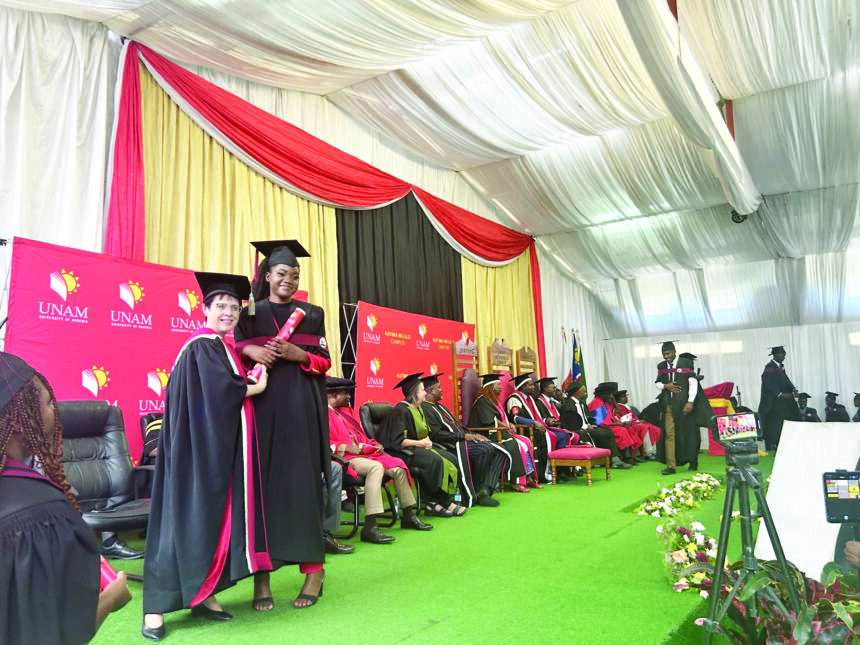KATIMA MULILO –University of Namibia vice chancellor Kenneth Matengu has underscored the pivotal role of higher education in driving economic growth and social transformation.
He called for greater investment in research, innovation and education quality.
Speaking at the Unam Katima Mulilo campus graduation ceremony Tuesday,
students received their qualifications in fields including animal health, education,
counselling and wildlife management and ecotourism, Matengu posed a thought-provoking question to the audience:
“What is the contribution of education to economic growth?”
He argued that universities are more than just institutions of learning – they are hubs of innovation, responsive research and societal engagement. “Unam, like all forward-looking universities, empowers citizens to function in the private interest for the public good,” he said. “Universities help create new technologies, systems and solutions to social and industrial challenges.” Matengu said education increases productivity, facilitates innovation and enhances a country’s ability to generate its own knowledge and technologies—cornerstones for sustainable development.
He referenced World Bank data, which shows tertiary education yields a 21% economic return in sub-Saharan Africa, and has wider social benefits, including healthier lifestyles, environmental awareness and increased civic participation. Despite these benefits, Matengu stressed the need for increased investment in research and development, warning that underfunded higher education systems breed ignorance and poverty.
“No country has developed without investing in higher education, and enhancing research and development capacity. We are better off when we know what we don’t know—because only then can we do something about it,” he noted.
He also spotlighted Unam’s recent strides in research collaboration through the KAZA Research Network, established after a successful conference hosted by the Katima Mulilo campus in 2023. The initiative aims to support sustainable development within the Kavango Zambezi Transfrontier Conservation Area (KAZA TFCA) through evidence-based research. Looking ahead, Matengu said they will soon launch their 2025–2030 Integrated Strategic Business Plan. The plan is aimed at transforming the university into a research-intensive and globally-competitive institution focused on people, culture, technology and societal impact.
He proudly noted that Unam ranks 13th among African universities, according to the latest Times Higher Education rankings—the only Namibian university on the list—with an impressive H-index placing it first nationally.
Addressing the graduates, Matengu encouraged them to be problem-solvers and change-makers in their communities.
“You have the knowledge. Now go out and make a difference. Be agile. Be entrepreneurial. Don’t ask what your country can do for you—ask what you can do for Namibia.”
– anakale@nepc.com.na



